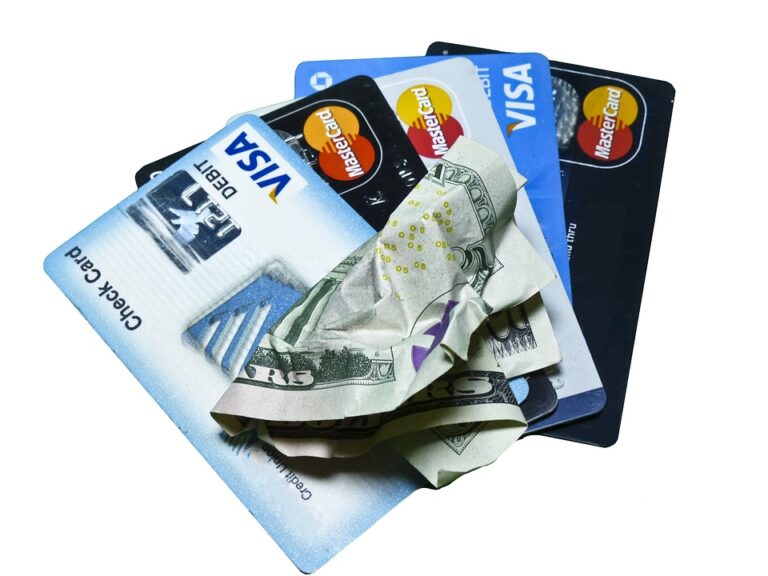Last updated Jul. 27, 2024 by Okechukwu Nkemdirim
Filing for bankruptcy is a substantial financial decision often considered a pathway to relieve overwhelming debt. However, it is crucial to understand that bankruptcy doesn’t necessarily clear all types of debt unconditionally. This article explores the intricate landscape of bankruptcy to offer a clear understanding of what debts might be dischargeable and which ones might not. We discuss Chapter 7 and Chapter 13 bankruptcy, eligibility criteria, types of dischargeable and non-dischargeable debts, as well as the long-term implications of filing for bankruptcy.
Understanding Bankruptcy: Chapter 7 vs. Chapter 13
Bankruptcy proceedings can broadly be categorized into Chapter 7 and Chapter 13, each serving different purposes and catering to varied financial situations.
Chapter 7 Bankruptcy
Chapter 7 bankruptcy, also known as liquidation bankruptcy, is designed for individuals who have minimal income and require their debts to be wiped clean rapidly. Here’s an overview:
- Process: A trustee is appointed to oversee the sale (or liquidation) of non-exempt assets. The proceeds are then distributed to creditors.
- Discharge: After the liquidation and subsequent distribution, most remaining debts are discharged, meaning you are no longer legally obligated to pay them.
- Eligibility: Individuals must pass a means test to qualify for Chapter 7, which assesses income and expenses to determine financial hardship.
Chapter 13 Bankruptcy
Chapter 13 bankruptcy, known as the wage earner’s plan, caters to those with a regular income but who struggle with debt management. Here’s how it works:
- Process: It allows individuals to propose a repayment plan to cover debts over three to five years.
- Discharge: At the end of the repayment plan, remaining eligible debts are discharged.
- Eligibility: Requires a stable income to adhere to the court-approved repayment plan.
What Debts Can Be Cleared By Filing Bankruptcy?
The primary function of bankruptcy is the discharge of certain debts, thus providing the debtor a fresh start. The type of debt discharged can vary depending on the chapter of bankruptcy filed.
Dischargeable Debts in Chapter 7
Commonly dischargeable debts in Chapter 7 include:
- Credit Card Debt: Most unsecured credit card debts can be discharged.
- Medical Bills: These are usually wiped clean with no particular emphasis on the nature of medical services.
- Personal Loans: Typically, unsecured personal loans are dischargeable.
- Utility Bills: Unpaid utility bills up to the date of filing are generally dischargeable.
- Certain Tax Debts: Some older tax obligations might be dischargeable under stringent conditions.
Dischargeable Debts in Chapter 13
In Chapter 13, debts are managed through a repayment plan but could also be discharged at the end:
- Secured Debts: Loans linked to collateral can be reorganized for repayment, and deficiency balances can be discharged after the plan.
- Unsecured Debts: Similar to Chapter 7, unsecured debts like medical bills and personal loans are discharged.
What Debts Cannot Be Cleared By Bankruptcy?
It is pivotal to note that not all debts can be wiped clean by bankruptcy. Some of the non-dischargeable debts include:
- Student Loans: Generally, student loans are not dischargeable unless undue hardship can be proven—a high bar to meet.
- Recent Tax Debts: Debts incurred from recent tax obligations are usually non-dischargeable.
- Child Support & Alimony: These familial obligations are exempt from bankruptcy discharge.
- Legal Fines and Penalties: This includes fines from criminal activities, traffic tickets, and other court-imposed penalties.
- Debts Caused by Fraudulent Activities: Any debts resulting from fraud or intentional misconduct are non-dischargeable.
The 2005 Bankruptcy Act
The Bankruptcy Abuse Prevention and Consumer Protection Act of 2005 tightened guidelines around certain discharges, making it pivotal to consult a legal professional to navigate these complex waters efficiently.
The Long-Term Implications of Filing for Bankruptcy
Credit Score Impact
Filing for bankruptcy has a significant impact on your credit score, staying on record for:
- Chapter 7: 10 years from the date of filing.
- Chapter 13: 7 years from the date of filing.
Financial Rehabilitation
The aftermath of bankruptcy necessitates a period of financial rehabilitation:
- Access to Credit: Securing credit post-bankruptcy is challenging and often comes with high-interest rates.
- Loan Acceptance: Obtaining mortgage or personal loans becomes more rigorous, often necessitating a consistent effort to rebuild creditworthiness.
Emotional and Psychological Effects
While bankruptcy offers relief, it also appends emotional and psychological stress, as the stigma around financial failure can affect personal relationships and self-esteem.
Conclusion
In conclusion, filing for bankruptcy does not clear all debts unconditionally. While it can discharge numerous unsecured debts, the scope remains limited concerning secured debts and special exemptions like student loans, child support, and recent tax liabilities. Understanding the nuances between Chapter 7 and Chapter 13 bankruptcy, coupled with the knowledge of dischargeable and non-dischargeable debts, can aid in making an informed decision.
✓ Short Answer
Filing for bankruptcy can clear many types of debts, especially unsecured ones like credit card debt and medical bills. However, it does not discharge all obligations. Student loans, recent tax debts, alimony, child support, and other specific debts remain non-dischargeable. Your choice between Chapter 7 and Chapter 13 will dictate the extent and manner of discharge.
However, understanding the accompanying long-term implications, constraints, and legal nuances is invaluable in maneuvering through this daunting financial decision.
Frequently Asked Questions (FAQs)
1. Can bankruptcy eliminate all my debts?
No, bankruptcy cannot eliminate all debts. While it can discharge many unsecured debts like credit card and personal loans, it cannot discharge student loans, recent tax debts, child support, alimony, and certain legal fines or penalties.
2. What’s the difference between Chapter 7 and Chapter 13 bankruptcy?
Chapter 7 involves liquidating non-exempt assets to pay off creditors, while Chapter 13 allows for a repayment plan over three to five years, after which remaining eligible debts are discharged.
3. Will my credit score be affected by bankruptcy?
Yes, bankruptcy significantly impacts your credit score. Chapter 7 bankruptcy stays on your credit report for 10 years, and Chapter 13 remains for 7 years.
4. Can I keep my house and car if I file for bankruptcy?
Possibly. In Chapter 7, exempt assets including a home and car might be protected up to certain value limits. In Chapter 13, you can generally keep these assets provided you adhere to the repayment plan.
5. Do I need a lawyer to file for bankruptcy?
While not legally required, it is highly recommended to hire a bankruptcy attorney. The filing process involves complex paperwork and legal nuances better handled by a professional.
6. How long does the bankruptcy process take?
Chapter 7 generally takes around 4-6 months, while Chapter 13 spans over 3-5 years based on the repayment plan.
7. Can student loans be discharged through bankruptcy?
Generally, student loans are not dischargeable unless undue hardship is proven, which is notably difficult.
8. What is a means test in bankruptcy?
A means test determines eligibility for Chapter 7 bankruptcy. It assesses your income and expenses to decipher your financial situation.
9. What happens to co-signers if I file for bankruptcy?
Filing for bankruptcy can impact co-signers on your loans. The responsibility to repay the co-signed loan might shift to the co-signer.
10. Can I file for bankruptcy more than once?
Yes, but there are time restrictions. You must wait 8 years between filing Chapter 7 cases and 2 years between filing Chapter 13 cases, with other combinations having their specific waiting periods.
By gaining a profound understanding of bankruptcy’s potential to discharge specific debts, while also recognizing the types it cannot, you can better navigate your financial landscape and make an empowered decision.





